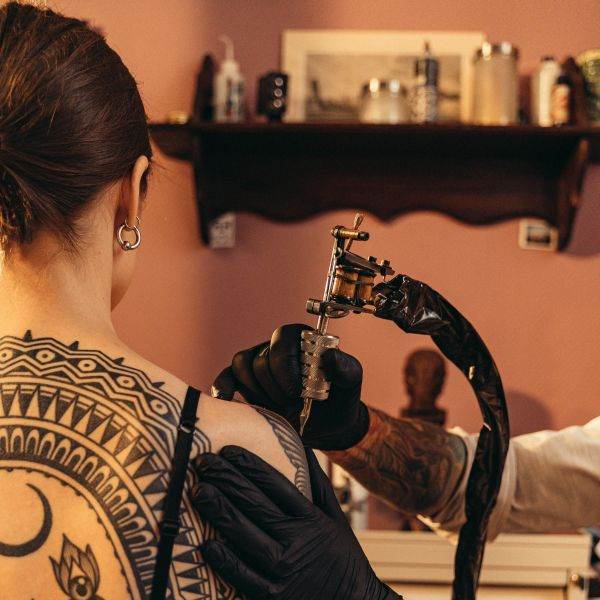A large study conducted by the University of Italian Switzerland (USI) and published in the prestigious journal Proceedings of the National Academy of Sciences (PNAS) raises serious questions about the impact of tattoos on the immune system. The research, cited by the EFE agency, shows that the pigments used in tattoos do not just remain in the skin, as was previously believed, but also migrate rapidly into the lymphatic system, a key component of the body's natural defense mechanism. The team led by Santiago F. Gonzalez, from the USI-affiliated Biomedical Research Institute, demonstrated that the ink used in tattoos moves to the lymph nodes within a few hours. Once there, the pigments accumulate in large quantities, where they are captured by macrophages, cells essential for immune defense. The Swiss university explains that the body reacts in two phases: an acute phase, which lasts about 48 hours, and a chronic phase, which can persist for years.
This chronic phase is of greatest concern to researchers, as it keeps the immune system in a state of constant stress, reducing its effectiveness against infections or even some forms of cancer.
One of the central conclusions of the study is that macrophages fail to degrade the ink as they do with common pathogens. Instead of eliminating the pigment, the cells end up dying, being replaced by new ones, which resume the process, an endless cycle that disrupts the optimal functioning of the lymph nodes. The colors red and black, the most used in the tattoo industry, also appear to be the most problematic. They showed higher levels of toxicity in laboratory experiments, followed by green pigment. The research, carried out over seven years and involving 12 international groups, also included a crucial test: vaccinating mice, some with tattoos and some without. The result was clear: tattooed animals produced significantly fewer antibodies than non-tattooed ones. This suggests that the immune system of people with tattoos may respond less well to certain vaccines or infections, although researchers emphasize that further studies on humans are needed for confirmation. Worldwide, almost one in five people has at least one tattoo, an artistic, cultural or personal practice that has become extremely popular in the last two decades. That is why the study's conclusions are attracting the attention of the medical community, which insists on the need for stricter regulations and clearer public information. "These results raise concerns about the safety of tattoos," USI reports in the official press release. Although they do not recommend avoiding tattoos, specialists call for caution and a careful analysis of the risks, especially for people with low immunity, lymphatic problems or chronic diseases.
















































